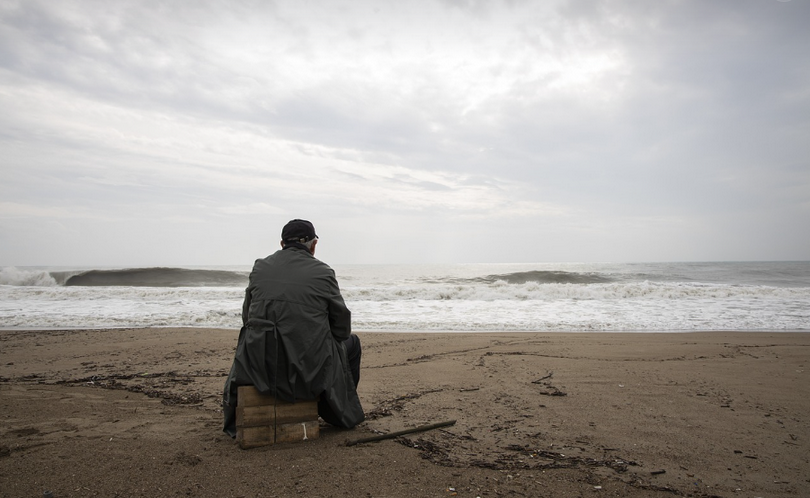In A Biography of Loneliness, British cultural historian Fay Bound Alberti concludes that before the late 18th century, the term "loneliness" was seldom used in publicly available English texts. By the end of the 20th century, however, its usage had peaked, with loneliness emerging as a potential modern epidemic in the 21st century.
Recently, a Christian writer, Brother Wang, shared his insights on the topic of "individualism" and loneliness. He observed that individualism has developed to a relatively advanced stage in Japan and that this trend is bound to influence China. He emphasized the need to acknowledge the growing prevalence of loneliness within society.
Japan: Islands of Individualism and the Rise of Therapeutic Media
Brother Wang remarked, "Individualism and loneliness are prevailing in Japan, and an increasing number of therapeutic media have emerged in response."
He referenced the Japanese film "My SO Has Got Depression (Tsure ga Utsu ni Narimashite, 2011)," noting that it offers a realistic portrayal of the coldness and harshness in the workplace. After the character Mikio Takazaki is diagnosed with depression and requests leave from his boss, he gets a cold response: "The company is very busy, and everyone is depressed. Don't complain; go back to work."
When Mikio returns home and tells his wife, Haruko, of his condition, he says, "I'm sorry." Behind those three words lies a huge sense of loneliness and vulnerability. Haruko is struck with guilt, realizing she has no idea when the person closest to her has gone from being healthy to depressed. The film reveals how even those living under the same roof can experience loneliness due to a lack of emotional communication.
The turning point comes with a simple response from Haruko: "If it's too hard and too painful, don't push yourself; just keep a normal mind." True healing, the film suggests, comes from acceptance and companionship, rather than neglect, criticism, or blame.
From then on, Haruko accompanies her husband while drawing comics. Their days are difficult, with Mikio suffering sudden breakdowns and even having suicidal thoughts. However, together, through love, responsibility, and mutual commitment, they finally overcome the loneliness and depression.
Such stories are not limited to films and TV shows. According to data from Japan's Ministry of Health, Labour and Welfare, one in fifteen Japanese people suffers from depression.
Wang said, "the rise of 'individualism' is an inevitable trend, and humanity is entering an era of loneliness. We must view the individual within the broader social context, not to judge whether society is good or bad, but to focus on the individual. How a person is wounded and how he or she finds comfort, whether from others or from elsewhere. This reflects the relatively mature development of individualism in Japan, which values personal growth and places importance on individual emotions."
Indeed, Japan has produced numerous healing-themed works, such as the heartwarming anime "Natsume's Book of Friends," the gentle and touching film "Ocean Heaven," and the animated classic "Howl's Moving Castle" by renowned director Hayao Miyazaki. These creations have achieved not only artistic success but have also resonated deeply with audiences, becoming emotional havens for many.
China: Unsettled Individualism and the Emergence of "Xiaoyi Culture"
Wang remarked, "Compared to China in the past, society is indeed moving toward greater individualism and liberalization. Increasing numbers of people, both young and old, are living alone and choosing to keep pets. With the advancement of artificial intelligence, many now prefer conversing with AI over engaging with those around them. Especially among today's youth, there is a growing effort to understand themselves and define their personal boundaries. While it is certainly positive to recognize, respect, and establish boundaries, what's currently lacking in China is a broader understanding and tolerance of individualism shaped by those boundaries. As a result, individuals often find themselves with nowhere to turn."
The younger generation in China is also experiencing a growing trend of "severing ties with relatives." The interference of family members in their personal lives has left many young people feeling pressured and constrained. "They both make demands of you and judge you," Wang explained.
Interestingly, a new term, "Xiaoyi culture," is gaining popularity in China. "Xiaoyi," which refers to one's maternal aunt, typically someone 5 to 20 years older, is often remembered as someone who played with the younger generation during childhood and patiently accepted their misbehavior and rebellion. As they grow older, she becomes an elder who shares emotional understanding with them. Unlike other relatives, a "xiaoyi" does not interfere with a young person's life choices but offers quiet support, becoming a new source of emotional connection. As Wang noted, the "xiaoyi" may be the only family member who is not "cut off." He reinterprets "Xiaoyi Culture" as a spirit of selfless dedication.
As a Christian writer, Wang has also observed that, through years of reading and reflection, much of China's domestic literature and film pays little attention to the individual. Most content, he says, consists of superficial "chicken soup" articles that possess aesthetic form but lack inner depth, relying on clichés instead of truth, highlighting exceptions rather than shared human experience. These works often overflow with complaint and venting. But, Wang asks, if one only criticizes and accuses without restraint, what becomes of that person's soul and life? Where is the way forward?
Whether in Japan's "healing-themed works" or China's "Xiaoyi culture," the shift from individualism to loneliness can lead either to depression and "severed family ties" or to healing and caring support of "Xiaoyi". The key factor is the presence of understanding, acceptance, and love.
Loneliness may become an unavoidable part of future life. As for how to cope with it, Wang shared, "You need to find your own joy in life, develop personal interests, and pursue happiness. Activities like writing or practicing calligraphy are all good ways."
He added, "Our next generation will face even greater challenges of loneliness. In the past, education systems did not support the development of personal interests, focusing solely on academic achievement. But today's parents must guide their children to understand themselves and nurture their hobbies and passions from an early age."
Originally published by the Christian Times
- Edited and translated by Poppy Chan












